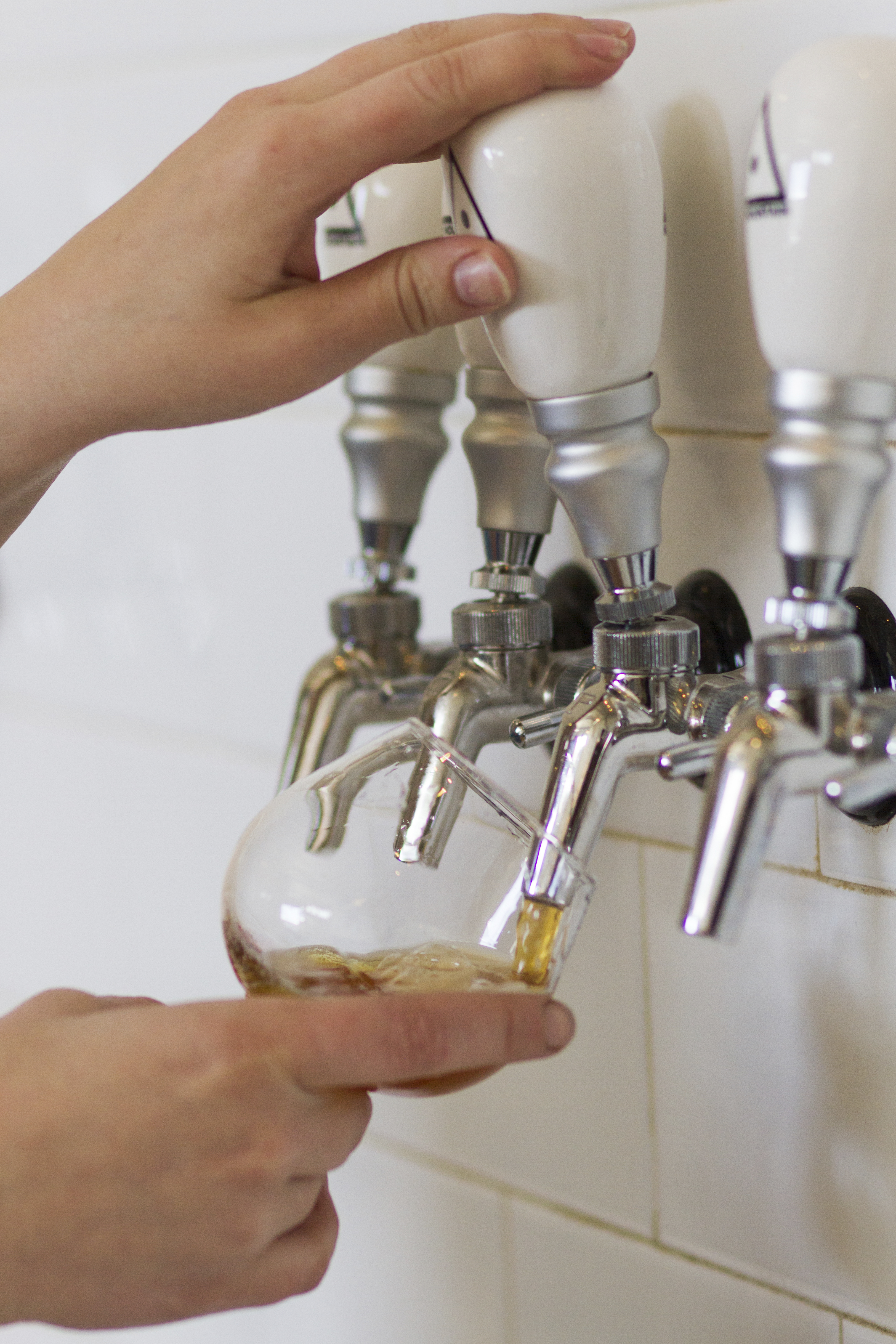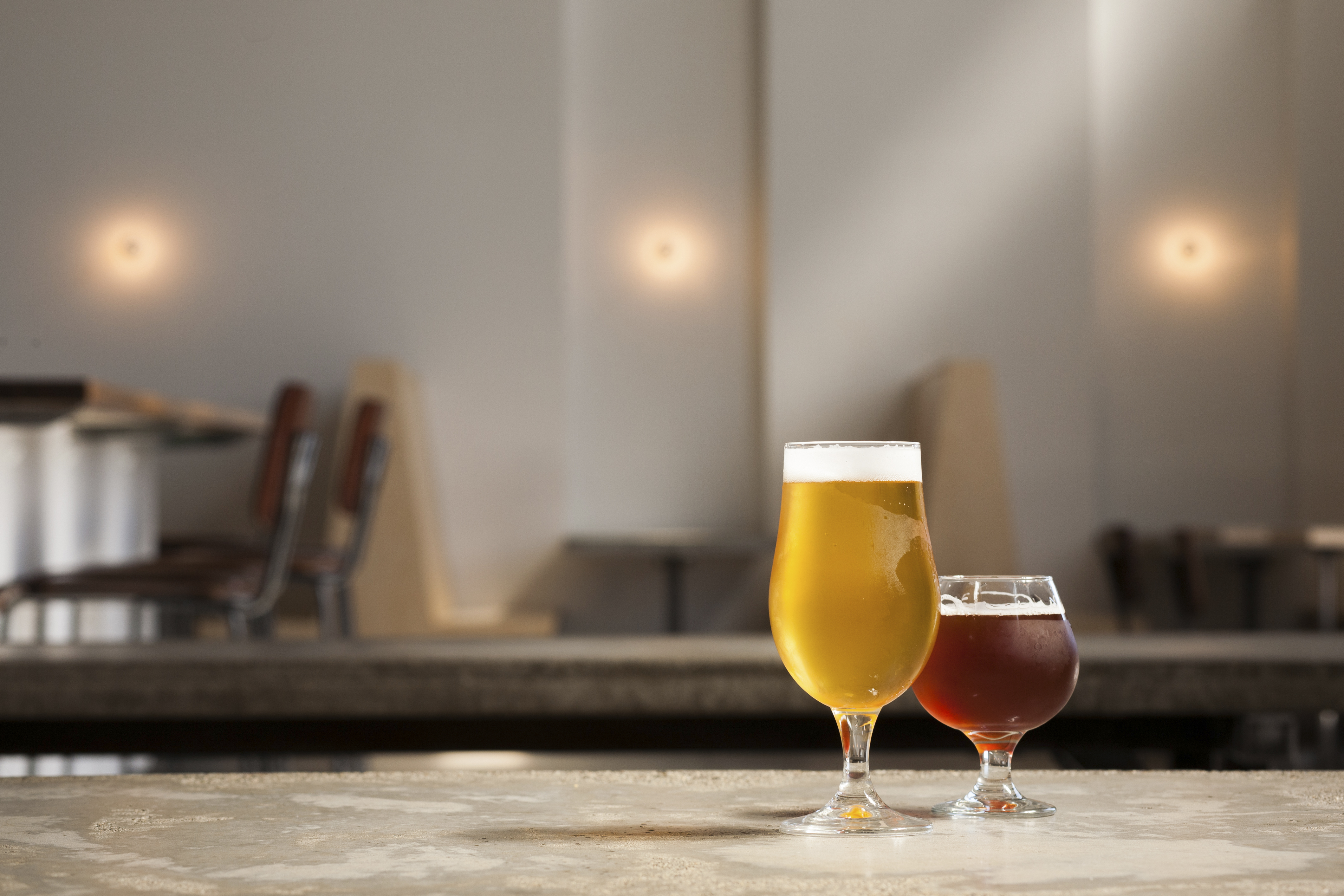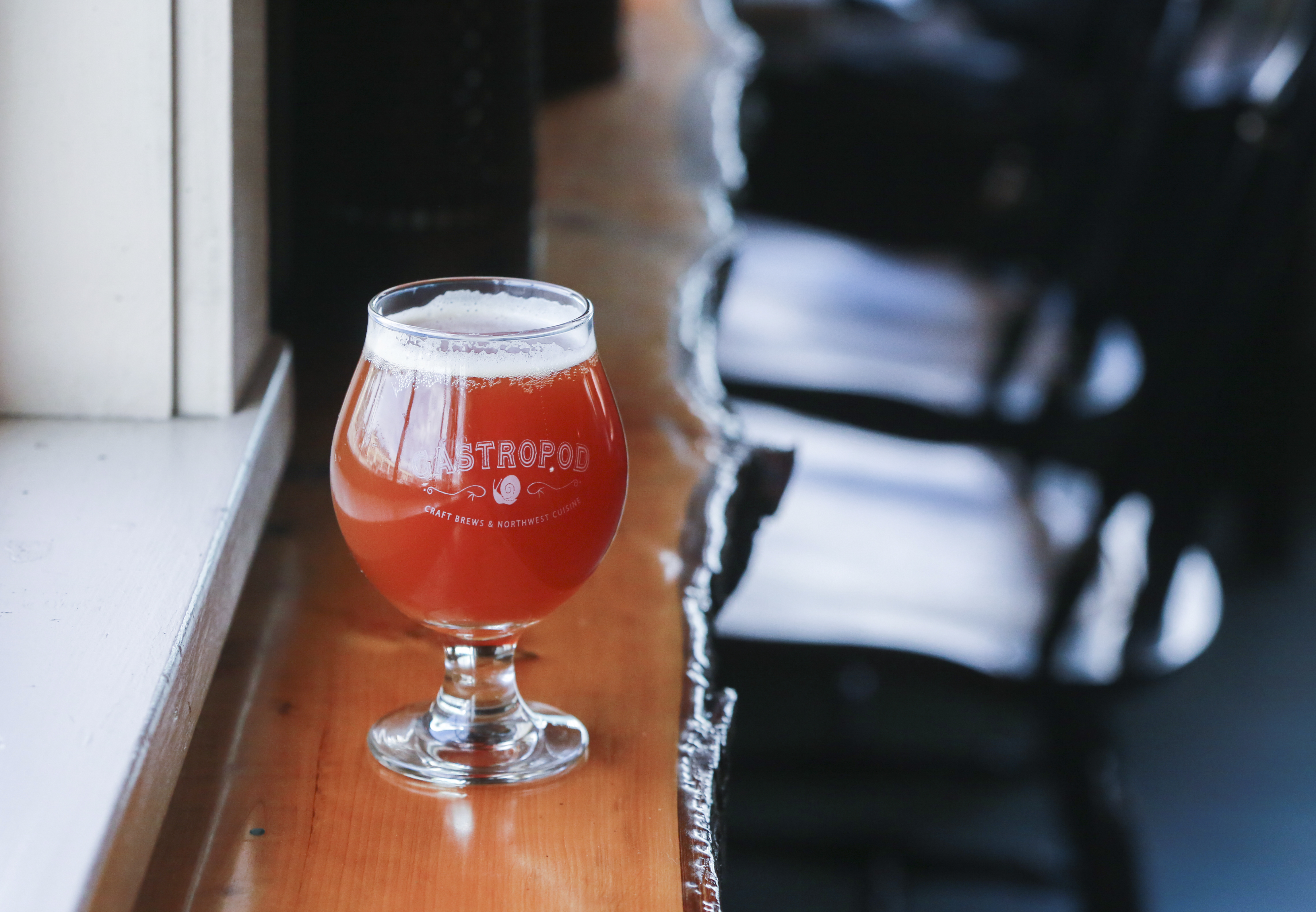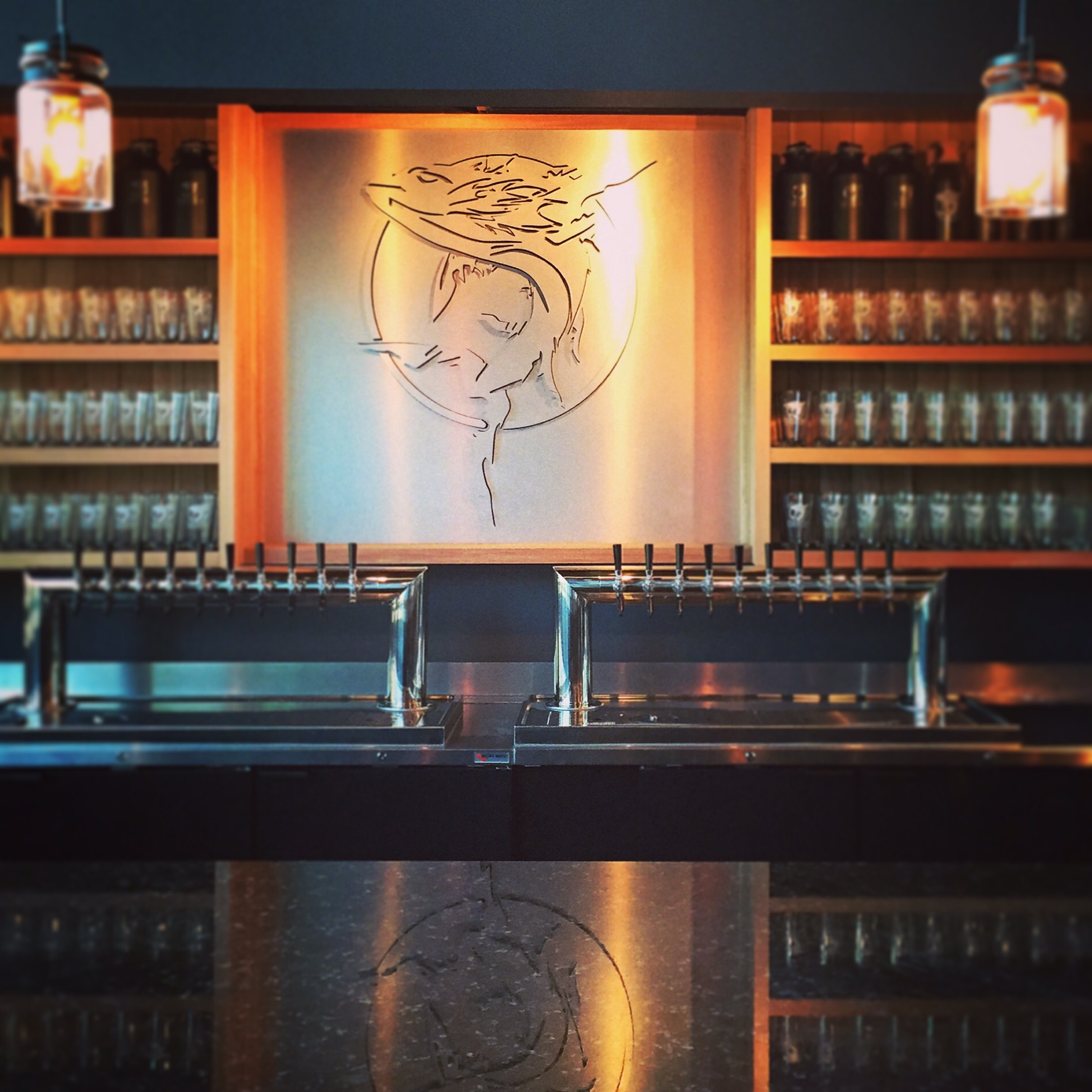Adam Paysse wriggles loose the stopper in an oak barrel. He shines a flashlight into its depths, revealing a primordial goop of opaque white bubbles emerging from a pond-scum-like film. Underneath, apparently, is beer, which will one day be consumed by the eager masses lining up inside Holy Mountain Brewing’s taproom to sip Paysse’s latest experiments.
As Paysse, Holy Mountain’s president, explains, that “white, gnarly looking thing” is called a pellicle, a layer that forms over beer that ages on Brettanomyces, a type of yeast used in beer styles like saisons and lambics. Brewers endearingly call it “Brett,” as if it were a good buddy.
“What happens is—this is kind of rad—Brett will form this protein layer on top of the liquid it’s in,” says Paysse with noticeable excitement in his voice, in an effort to control the rate at which oxygen enters. “And here’s the really cool part: The pellicle will string together like a little bucket brigade, and when it wants more oxygen, the Brett cells at the top will pass down oxygen to other Brett cells until they put it in the solution,” he continues. “And you see all these crazy bubbles form because that’s CO$ID/aalt32 that’s trapped in the pellicle. It’s super-gross. We usually try not to show this to people.”
Such seemingly bizarre science experiments are commonplace at Holy Mountain, which opened in January in Interbay. It’s here where Paysse and his partners Colin Lenfesty and Mike Murphy dispense with the common notion of “flagship” beers.
Most breweries in Seattle consistently stock a predictable lineup, including an IPA, a pale ale, a blonde, and a stout. “For lack of a better term I always call that the ‘American brewpub model,’ ” Paysse says. “It’s like hamburger, French fries, milkshakes. You expect that.”
But you won’t find those standard offerings at Holy Mountain. Instead, the brewery’s menu rotates constantly, with a heavy dose of barrel-aged beers, farmhouse-style ales, and yeast-forward creations, like sour beers. Holy Mountain concentrates on the types of brews usually surfacing as limited releases at more traditional breweries.
As such, they’re helping write the newest chapter in the city’s maturing beer scene. Seattle’s proliferation of breweries shows no sign of slowing, but increasingly they’re departing from the predictable model and going for something more unique, mature, and creative. And they’re speaking to an increasingly broader, more educated audience.
No longer are the types of beers brewed at Holy Mountain and other edgy Seattle breweries the exclusive realm of “beer nerds,” a small subsection that is incredibly knowledgeable about various styles and well-versed in everything beer. The sours and saisons and barrel-aged beers are becoming mainstream.
If Holy Mountain had tried to open a decade ago—or perhaps sooner—it’s doubtful they would have been able to fill their current 60-seat taproom as consistently as they do today. Without the standard flagship pale/blonde/stout model, they may have been relegated to a smaller space, the sort of nanobrewery that would fly under the radar for all but the most dialed-in beer nerds.
But they’ve found incredible success right off the bat, testifying to Seattle’s maturing palate. They’ve added more employees and expanded their taproom hours, and say their beer has been “very well received.”
It appears Seattle was waiting for a place like Holy Mountain to open. “It was surprising to all of us, when we started talking about opening a brewery four or five years ago, we were like, ‘Why isn’t anyone doing this in Seattle?’ We didn’t understand it,” Paysse says. “It was a huge void.”
Paysse sees evidence in popular beer events like Brouwer’s annual Sour Beer Fest, part of Seattle Beer Week, which is consistently packed. “Sour beers are definitely achieving much more mainstreaming now. People realize that they’re awesome. But there are more and more people willing to try things that aren’t as commonplace.”
It helps Holy Mountain’s cause that beers like sours are attractive to a non-beer-drinking audience. Paysse says the brewery’s gose, a tart wheat beer that is barrel-fermented with coriander, was ordered by “all sorts of people who had that ‘I don’t really like beer but this is amazing’ reaction to that beer. That kind of stuff is rad. The spectrum of types of beers and flavors is impossibly broad.”
But Paysse emphasizes that while Holy Mountain is bucking tradition in the context of Seattle, they’re actually brewing some pretty traditional beers.
“We use a lot of old-school brewing traditions common in Belgium, Germany, and England, with very yeast-forward beers,” he says. “Most American breweries don’t highlight the yeast; it’s just there to ferment the beer. American beers, by and large, are very yeast-neutral. They sit back and allow the malt and the hops to shine, which is awesome, and you can make some phenomenal beers like that, but it’s a different balance. Our beer is pretty out-there for Seattle and pretty progressive, but it’s not that weird in a wider context.”
Paysse also says that Holy Mountain is still just getting started; they’re ramping up production of farmhouse ales, and have a growing number of beers aging in barrels for later release. “We’re about to start really testing the waters with some of those styles,” he says. “We’ll see what the market is.”
food@seattleweekly.com







